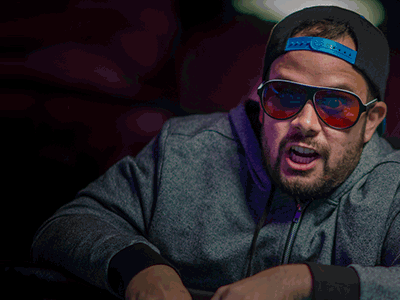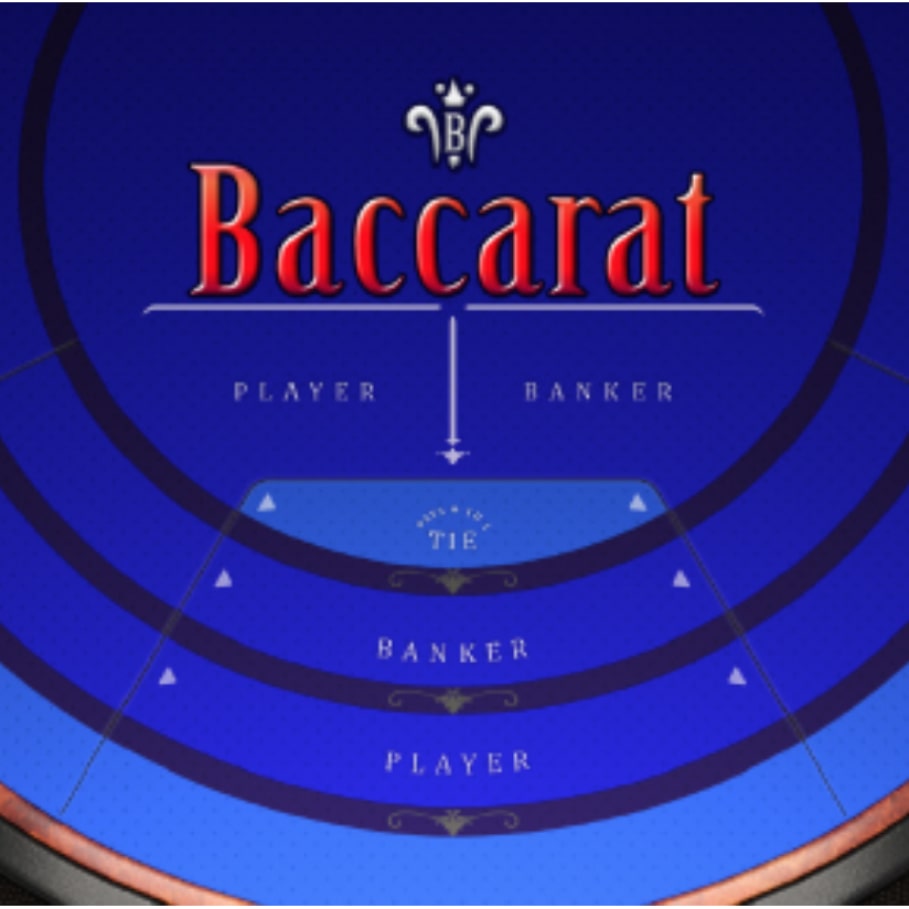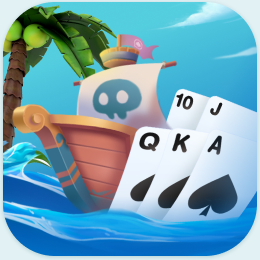The Ultimate Guide for Dominating Weak Tournament Competition Pre-flop

The lion’s share of your winnings in poker tournaments will come from weak and inexperienced players. Here’s how to maximize your profits against them.
As a general strategy against weak players, we should aim to accomplish two goals:
- Come up with the best responses to their poor plays
- Induce them to make further mistakes That means there are several factors that matter very little, if at all, when making decisions against weak players than they otherwise would:
- Balancing our ranges
- Determining optimal bluffing/calling frequencies
- Being exploitable
And here are a few more that are also less relevant than normal:
- Pot odds
- ICM
- The relative strength of our hand
Why do these typically crucial factors matter less than usual?
Well, suppose you’re playing a heads-up match of rock, paper, scissors, Villain is a fish who, over a big sample, tends to choose rock over 50% of the time and scissors just 10% of the time. Which is the correct strategy:
- Randomize your move by playing rock, paper and scissors each 33.3% of the time
- Play paper 100% of the time* This example is analogous to playing poker against fish: If a player is only going all-in with the nuts on the river, for example, then you need to fold the second nuts, even though doing so runs counter to basic game theory and makes you exploitable.
*Of course, over a big sample you’d want to mix up your play a bit to avoid Villain noticing that you’ve figured them out, but that’s beside the point.
All right, back to poker.
(Note: Want to be the best player at the table? Start crushing your tournament and cash game competition with expert strategies when you join the Upswing Lab. Learn more now!)
Isolating weak limpers
When weak players limp and it folds around to you in late position, you need to isolate with a variety of hands.
Example:
Tournament. 50bb Effective Stacks
Hero is dealt A♠ 8♣ in the CO HJ limps. Hero raises to 4bb.
It’s tough for this play not to be profitable. Here are a few reasons why:
- We are in position with the initiative
- We very often have the best hand
- We have superior post-flop skills
- We’ll win the pot immediately if the limper folds
Now let’s consider the many downsides of over-limping:
- We might not have position (depending on the button) and we definitely won’t have the initiative
- A player behind might raise, forcing us out of the pot
- If no one raises, the pot will go at least 3-ways, making it much more difficult to win (especially with A8o, which sucks in multi-way pots)
- We can’t win the pot pre-flop
How wide should we isolate those limps, then? Short answer: it depends.
You first need to consider positions: The more players left to act, the more careful you should be.
Second, in MTTs, stack sizes are a huge factor—not just your own and the limper’s, but all players’ still left. With a 10BB stack, for example, you don’t want to isolate with hands that are then priced in to call a shove.
In a vacuum, you can isolate with almost any reasonable hand, given all the reasons listed above. Again, isolating a weak limper in late position will generally be profitable.
But you shouldn’t isolate, say, 30% of hands all the time because regulars will catch on. Every regular uses a HUD these days, and even not-so-great regs are capable of 3-betting relentless isolators.
So, isolating is a bit of a balancing act; but it’s made easier by learning to use proper hand selection.
Since every player and situation are unique, it’d be impossible to come up with a chart-like solution for correct isolating ranges. But it is possible to figure out what kinds of hands you should use at certain stack depths.
At typical MTT stacks depths (20–40BB), use caution, and use hands that have one or two high cards, or otherwise flop very well (such as T9s). Even if you get the pot heads-up, you’ll generally have about 2.5 pot-sized bets behind on the flop, meaning that folding top pair becomes next to impossible, and flopping second or third pair will get you in a lot of difficult situations. Choosing hands that usually flop top pair will make things much easier for you, since you’ll generally have the best of it when the money goes in.
At deeper stacks (40+BBs), you should choose hands that have a chance to make nutted hands (suited hands, high connectors, pairs, etc.), unless both you and the limper are in late position. And if there’s a hand group you must avoid, it’s hands that easily end up second best. Hand like KTo, or A8o, for example, can be problematic at deeper stack depths, because you don’t want to play a bloated pot with a weak top pair. By contrast, a hand like 98s fares well because of it’s playability.
(Note: If a limper is loose/weak enough, isolating with a hand like KTo or A8o can be a perfectly fine play.)
3-bet pre-flop to isolate weak openers
When playing against regulars, you should often 3-bet their opens with polarized ranges. So, instead of simply 3-betting, say, the top 12% of hands, mix in some weaker hands as 3-bet bluffs that don’t play well as flats.
Against fish there’s little-to-no point to balancing your 3-bets in such fashion, as they’ll have no idea about ranges in the first place. We usually don’t want to 3-bet with hands that play terrible post-flop, because we’ll see flops often—3-betting fish with hands like A8o, for example, will just get us into a world of trouble.
There are several questions to ask yourself when deciding whether to 3-bet an open by a weak player or not:
- How tight is he opening?
This is the most important question. There are fish who limp 50% of hands and only raise with TT+ and AK. Against these players, we (obviously) never want to 3-bet as a bluff.
Then there are fish who open with around 15% of hands, and limp another 30%. Against these players we can still 3-bet non-nutted hands that have good post-flop playability, especially in position.
Finally there are the players who are all over the place, raising with ridiculous hands. It’s these players that we want to take advantage of by 3-betting them with a linear, wide value range.
- What are the positions?
Even bad players usually open with a tighter range from early position, meaning we can’t just 3-bet their UTG opens with abandon. Thus the later position we’re in, the wider we should 3-bet.
When we’re in the big blind and facing an open from a weak player in a heads-up pot, we should often just call unless we have a monster. A big reason why we want to 3-bet the fish is to isolate them, but when there are no over-callers, and no one left to act behind us, we’re guaranteed to have the fish to ourselves for the rest of the hand. Building the pot out of position just adds variance and leaves us with much less room for maneuvering.
- What is his expected response?
Very generally speaking, when facing a 3-bet we should expect bad players to call, and good players to fold, call, or 4-bet. Obviously this doesn’t mean that weak players always just call, but it’s important to plan ahead by asking yourself what you’d expect to usually happen.
Against a player who’s opening a lot but folding to 3-bets a lot, your hand itself becomes less relevant; the real value of the 3-bet comes from this opponent’s tendency to fold pre-flop. But against an opponent who’s playing poorly, and thus expected to flat call with way too big part of his opening range, we need to ensure that other factors work in our favor (positions, stacks, players left to act behind, chances of getting 4-bet bluffed, etc.) before doing anything.
- How deep are the stacks?
Stack size should affect your 3-betting range drastically. With shallower stacks you need to be more selective, whereas deep you can 3-bet weak players pretty damn wide (so long as long as the other players let you get away with it). Let’s consider a basic 30BB example:
Tournament. 30bb Effective Stacks
Hero is dealt A♠ 5♣ on the button CO raises to 2.25bb. Hero…?
First, let’s suppose that villain is an aggressive regular opening way too many hands. Even though A5o isn’t a great hand, it makes sense to 3-bet as a bluff every now and then. Since we have an ace blocker, the chances of our opponent folding are a bit higher.
Now suppose we’re up against a weak player who doesn’t open as much. Regardless of whether he’s opening 10 or 20 or 30%, 3-betting here would be suicidal against someone who’s generally not folding hands that he “should” fold. Our hand doesn’t flop well enough, and, when the flop comes A-x-x, we’ll get stacked frequently by Ax with a slightly better kicker.
On the other hand, against said weaker player I sometimes like to use a suited connector like J9s as a small 3-bet (say, to 5BB total over the 2.25x open). I don’t think this is a play that a fine-tuned overall strategy would advocate, but remember: we’re playing against a weak player, here. 3-betting J9s here has a lot of upsides:
- We get to isolate the fish with position and the initiative
- We have a disguised hand, meaning we’ll sometimes hit when we aren’t expected to
- J9s won’t be dominated as often as a hand like A5o
- If our opponent 4-bet shoves, we won’t be folding away that much equity (40% at most)
Should you 3-bet fish with every suited connector 30 BBs deep, then? No. But since above all else we want to isolate the weak players, these spots do come up, and sometimes you just have to go for it—even if it initially seems illogical to 3-bet bluff a fish at all. As long as you have a decent idea about what kinds of hands to use (and what kinds of hands not to use), it’s going to be hard to make a big mistake.
Things become more simple as you get deeper (100BB+). You no longer need to worry about someone shoving on you, and you have more room for all kinds of post-flop shenanigans. Even though deep-stacked poker is significantly more complex than short-stacked poker, 3-betting against weak players with deep stacks is much easier.
Remember: weak players tend to make big mistakes post-flop. We’ll talk more about post-flop in the second installment, but it’s crucial to note here that an end goal of good pre-flop play against weak players is maximizing the amount of post-flop pots you get to play against them. This is especially true in the early levels, when hitting the flop hard may net you a crazy amount of big blinds.
As long as the fish is opening with more than just premium hands, you want to 3-bet them often, and with hands that have good post-flop playability (along with nutted hands, of course).
When playing deep against a weak player’s open, I also like to limit my 3-betting from the blinds. Weak players tend to make big mistakes post-flop, but more often than not they’re on the sticky side–not the nitty side. Few spots are more challenging than holding a mediocre hand in a 3-bet pot out of position against a sticky opponent.
(Note: Ready to take your poker game to the next level? Learn expert tournament and cash game strategies from our world-class team of coaches when you join the Upswing Lab. Learn more now!) Here’s a typical example from the first level of a tournament with 200BB stacks:
Here’s a typical example from the first level of a tournament with 200BB stacks:
Tournament. 200bb Effective Stacks.
Hero is dealt A♠ J♠ in the big blind Fish opens to 3bb from the CO. 2 folds. Hero 3-bets to 11bb. Fish calls.
Flop (22.5bb): A♣ 6♥ 7♥ Hero bets 7bb. Fish call.
Turn (36.5bb) : 3♦ Hero checks,. Fish bets 25bb
This spot is already getting annoying. The fish may have a worse ace, or a flush draw, or 98, or something more ambitious, like T9. Or he could be clicking buttons with something silly like 55. But he can also have many hands that he “shouldn’t” have, such as A3, A6, A7, 54, or even AK. If we call here, we may face a huge bet on the river, which will be a really tough spot on any card but a Jack. But if we fold, we’re frequently getting owned by a fishy play with a worse hand.
What exactly should we do in this spot, then? Probably call and hope the fish check backs river, but this all could have been avoided by flatting pre-flop.
When 3-betting non-premium hands against fish (especially when deep-stacked), we really, really want to have position in the hand. From there we get to control the action and easily put the fish in tough situations. Out-of-position we risk building a pot for no good reason, and setting ourselves up to get owned by a fish who might not even know how he’s owning us.
From the small blind things become a little trickier, and 3-betting has the added benefit of forcing out the big blind (unless they wake up with something). But the same post-flop issues can arise, and you should at least use hands that are easy to play post-flop.
Considering history against weak players
In 2017 we’re taught to use balanced strategies and to make sound plays. Yet you still see players like Phil Hellmuth crush live tournaments despite making seemingly horrible plays time and again.
There are a few reasons why someone like Hellmuth–who I suspect couldn’t beat $10 MTTs online–still manages to win WSOP bracelets these days. The concept I’m about to introduce here is something that players like Hellmuth value in high regard, even though it’s so simple that it’s almost stupid.
You have limited time against the fish sitting at your table and it’s your job to take their chips before someone else does. They came to play poker and want action. The one thing they didn’t come to do is fold every hand. When someone forces them to fold over and over again, they get tilted, stubborn, and paranoid very quickly. It’s obviously level one fish logic to think along the lines of “I won’t let him run over me, next time I will call!”, but that’s how many recreational players think and act.
From our perspective, there are very few scenarios more profitable than when a weak player enters state of mind where he feels like we’re running over them. Sometimes all it takes to get them there is one 3-bet pot where we either push them off the pot or win a showdown with an unexpected hand like 75s.
When you play against other regulars, any one hand rarely really matters. No matter what gets shown down in some run-of-the-mill 3-bet pot, it doesn’t indicate much on its own as long as both players are generally solid.
But fishy players don’t view it the same way; if you ”own” them in one way or another, some will do everything in their power to call you down next time. You don’t even have to try to force these players into this desperate state of mind: all you need to do is to keep isolating them and playing standard poker on the later streets.
What you should NOT be doing is running huge, crazy bluffs to build a relentless image. But you want to attack the fish – mostly within the guidelines introduced in this article – and you want to do it often.
When you’ve isolated or 3-bet a fish a few times without showdown – or even better, been forced to show down a speculative hand – they’re already going to be fed up with you. This is why isolating weak players who limp is generally better than overlimping, and 3-betting is generally better than flatting. First you get to exploit them in the hands themselves, and as a bonus you also get to build history that’ll work in your favor later on.
In part 2 of this guide, we dive into playing post-flop against weak players.
As always, feel free to post questions in the comments below, or contact me on Twitter @chuckbasspoker.
Note: Do you feel stuck & wonder how you are going to become a higher stakes player?Discover expert tactics that will help you crush your competition when you get in the Upswing Lab. Learn more now!
Read more from Miikka Anttonen on Upswing Poker:
- How to Check-Raise with Short Stacks Like an MTT Boss
- 5 Poker Tournament Myths Too Many Players Believe
- How to Open-Raise in MTTs so the Big Blind Doesn’t Crush Your Soul
By Dan B. | March 24, 2020 By Mike Brady | May 28, 2019 By Dan B. | August 25, 2021 By Dan B. | November 13, 2018 By Dan B. | September 4, 2020 By Dan B. | July 14, 2020 By Dan B. | December 4, 2023 By George Mathias | February 27, 2018 By Dan B. | March 24, 2020 By Mike Brady | May 28, 2019 By Dan B. | August 25, 2021 By Dan B. | November 13, 2018 By Dan B. | September 4, 2020 By Dan B. | July 14, 2020 By Dan B. | December 4, 2023 By George Mathias | February 27, 2018
FAQ
How to win at tournament poker?
The best approach is to play a tight range of strong and/or playable hands, and you need to play those hands aggressively. Playing all of your hands aggressively, including the more speculative ones like 7♠ 6♠ or 5♥ 5♣, allows you to disguise the strength of your actual hand.
How to win against fish poker?
By attempting to bluff them off of their hand you will simply lose much more money than you should have and also manage to tilt yourself even more! The correct and most profitable strategy versus the fish who doesn’t fold anything is to value bet the living crap out of them. And then value bet them some more!
How to beat fish in poker?
By attempting to bluff them off of their hand you will simply lose much more money than you should have and also manage to tilt yourself even more! The correct and most profitable strategy versus the fish who doesn’t fold anything is to value bet the living crap out of them. And then value bet them some more!
How to Play WPT Global on Your Computer 2024
How to Play WPT Global on Your Computer Downloading the Software 1. Visit the Official Site: Go to the WPT Global website or use affiliate links provided by poker news sites. 2. Start the Download: Click on the “Download” button specific to your operating system (Windows or Mac). 3. Install the Application: 3.1 For Windows: Open the downloaded file from your “Downloads” folder. Follow the installation instructions. 3.2 For Mac:
What is the origin of the name Roulette?
What is the origin of the name Roulette? The origin of the name “roulette” is French and it means “little wheel”. The name is derived from the fact that the game is played on a small wheel that spins around, with players betting on where the ball will land. The word “roulette” was first used in its current context in the 18th century, although the game itself dates back much earlier.
What role did roulette play in popular culture such as movies and literature?
What role did roulette play in popular culture, such as movies and literature? Roulette has played a significant role in popular culture, appearing in numerous movies, books, and other forms of media. In movies, roulette often appears as a symbol of glamour, luxury, and risk-taking. One of the most famous examples is the classic film “Casablanca,” where the game is prominently featured in several scenes. In the movie, the character Rick (played by Humphrey Bogart) runs a popular nightclub and casino in Casablanca, Morocco, where roulette is one of the main attractions.
FishPoker – 集各種玩法於一身全新撲克平台! 這裡有多種經典和刺激的遊戲種類:NLH、Flash、SpinUp、AoF 以及PLO,不僅如此,還提供大菠蘿和十三張等遊戲模式。
This site only collects related articles. Viewing the original, please copy and open the following link:The Ultimate Guide for Dominating Weak Tournament Competition Pre-flop



























































































































































































